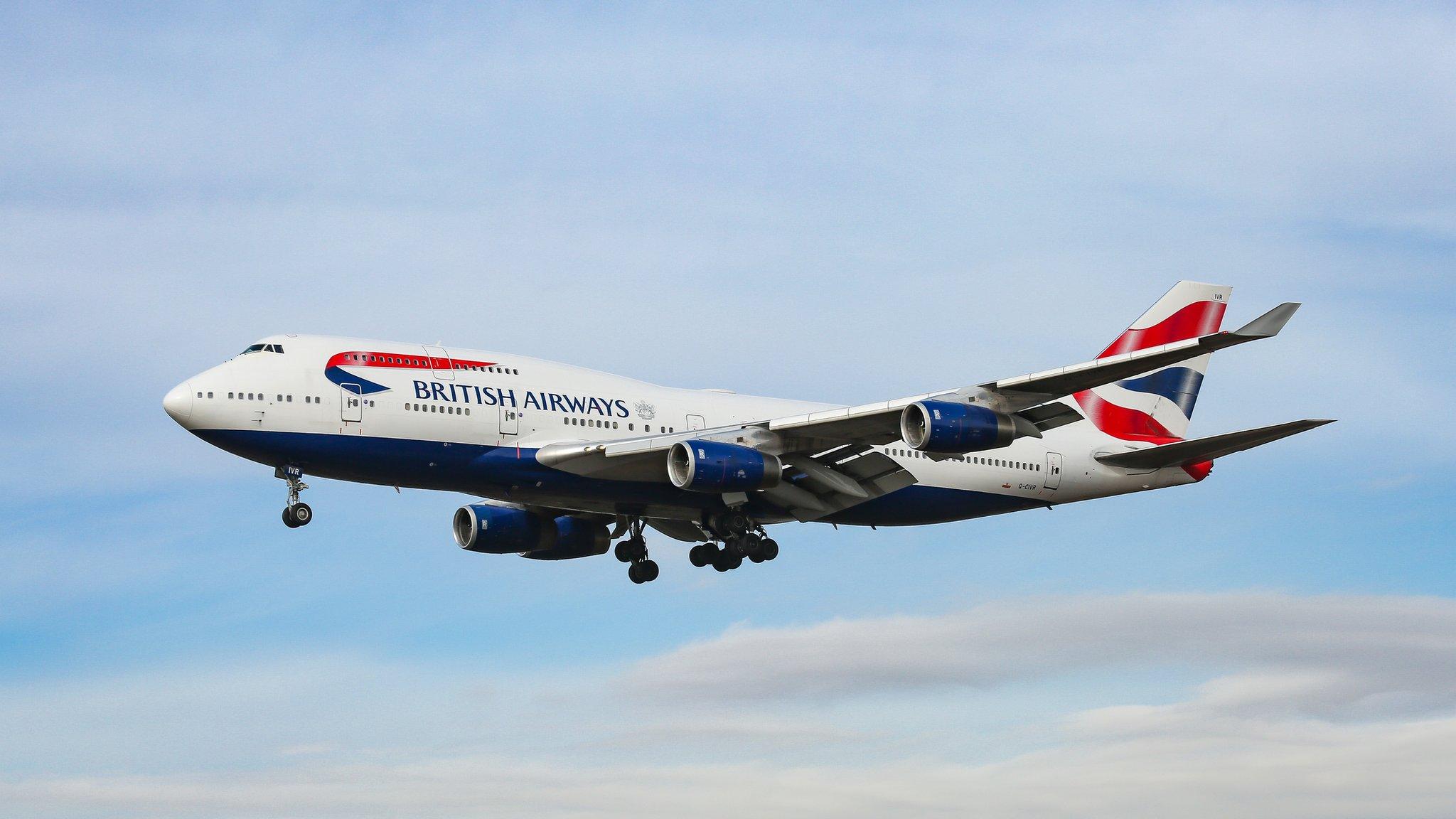Coronavirus: UK could ban mass gatherings from next week
- Published
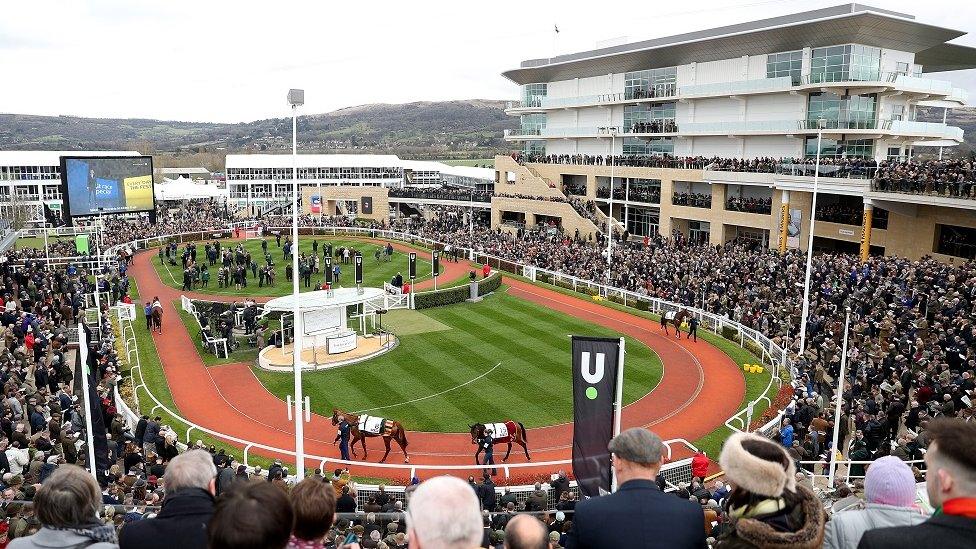
Mass gatherings could be banned in the UK from as early as next weekend as the outbreak of coronavirus intensifies.
A government source said ministers were now drawing up plans for the move - to ease pressure on emergency services.
It came hours after the government's chief scientific advisor insisted it was not the right time to shut down big events.
Scores of major sporting and cultural events have already been cancelled in response to the pandemic.
The number of confirmed cases of the virus in the UK rose to 798 on Friday and a total of 11 people have died.
But the government estimates the true number of cases to be around 5,000 to 10,000 around the UK.
It is understood ministers are working on plans to stop various types of public events.
The source said: "There are many complex considerations to make all these measures as effective as possible.
"We will make the right decisions at the right time based on the best scientific evidence."
It is thought a ban could start to take effect as early as next weekend, although exact timescales are not clear.
There has been criticism of the government's handling of the crisis, including from former Health Secretary Jeremy Hunt, who described its previous decision to hold off cancelling large gatherings as "concerning".

EASY STEPS: How to keep safe
A SIMPLE GUIDE: What are the symptoms?
GETTING READY: What is the UK's 'delay' phase?
TRAVEL PLANS: What are your rights?
IN-DEPTH: Coronavirus pandemic

Acting Liberal Democrat leader Sir Ed Davey told BBC Newsnight that the government's "rapid change" in tactic following the cancellation of sporting events suggested it was "playing catch-up with the rest of British society".
Shadow health secretary Jonathan Ashworth welcomed the move but urged the government to be "clear" about its plans.
"If that means publishing the scientific modelling so that all the experts can analyse it and peer review it and stress test it, if that maintains public confidence, that's an important step," the Labour MP told Newsnight.
The government's action plan - published last week, external - did raise the possibility of reducing the number of large-scale gatherings.
But the most recent tactics, announced on Thursday, advised people to self-isolate for seven days if they have a cough or fever, with no advice to avoid large gatherings.
Speaking on Friday, the UK's chief scientific adviser Sir Patrick Vallance said shutting down mass events would not have a "big effect" on transmission rates - though he did not rule out such a move going forward.
Whitehall sources say the government's approach has not changed but that there were concerns about the burden that large events might put on health services and the police.
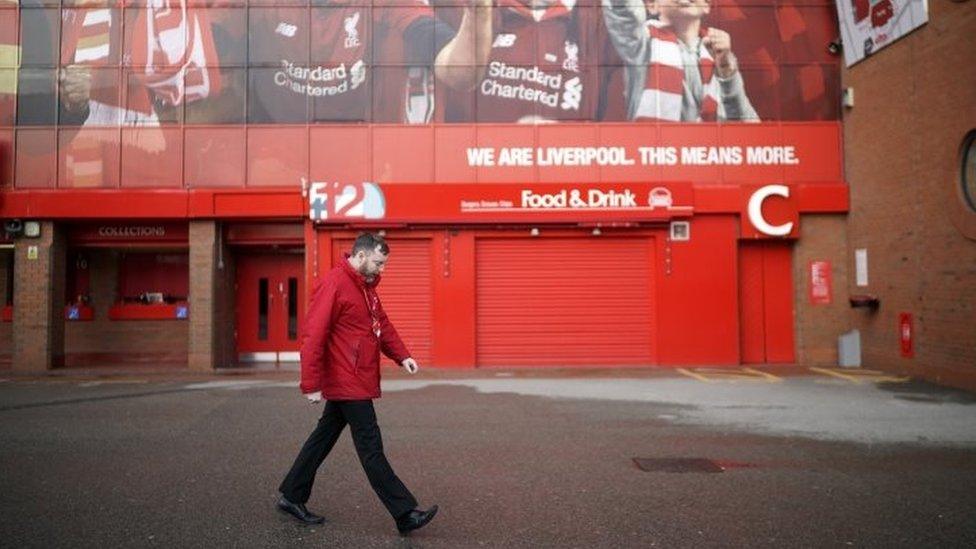
Prominent events still set to go ahead include the Grand National in April, the 75th anniversary VE Day commemorations and Chelsea Flower Show in May, and Glastonbury Festival in June.
Emergency legislation - including compensation for organisations affected by a temporary ban on big events - is due to be published next week.
Many sports bodies did not wait for a government directive and have already suspended competitions.
Football authorities suspended all top-flight matches until early April, while Saturday's Wales v Scotland Six Nations rugby match was suspended and England's cricket tour of Sri Lanka was called off.
The Scottish government has already advised that gatherings of more than 500 people should be cancelled from next week.
Everything you need to know about the coronavirus – explained in one minute by the BBC's Laura Foster
English local and mayoral elections, planned for May, are being postponed for a year until May 2021.
Small businesses such as music venues are also starting to feel the squeeze.
Music venue owner Vince Power told BBC Radio 4's Today programme he had a sell-out show on Friday night near London's Portobello Road, but fewer than half of the 550 people who had bought tickets showed up.
"I think people are scared," Mr Power said.
"I feel sad about the whole thing," he added, blaming the "uncertainty" and lack of direction given to small businesses. "The news keeps changing every day."
Bands are also cancelling, he said. "They are just saying they are just unsure, they don't know... they have got no real reason."
Mr Power, whose venues hold between 100 and about 500 guests, said: "Venues are sold out but people are not coming."
Mr Power warned that his business "can't really last very long" - just a few weeks.
- Published13 March 2020
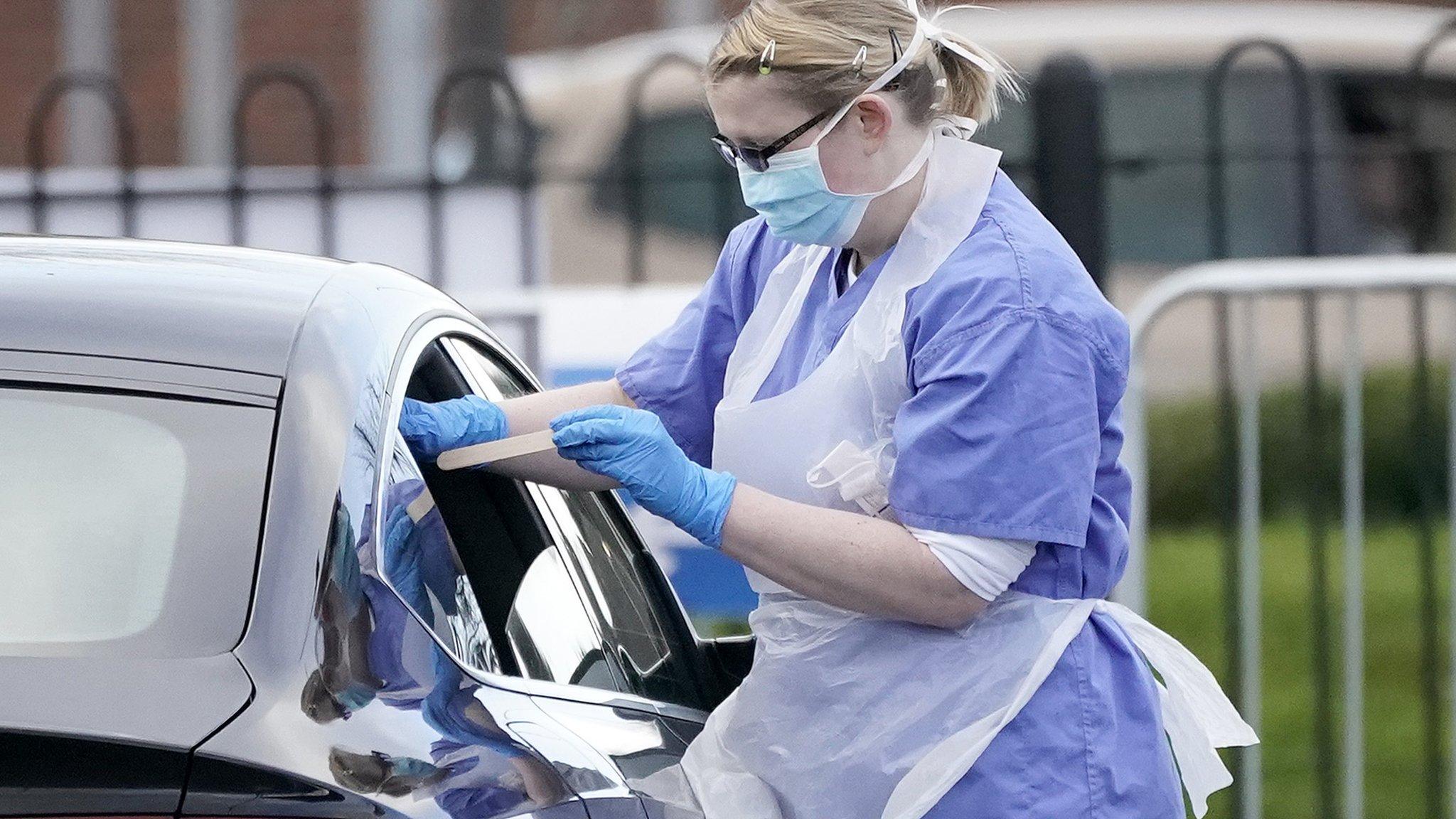
- Published13 March 2020
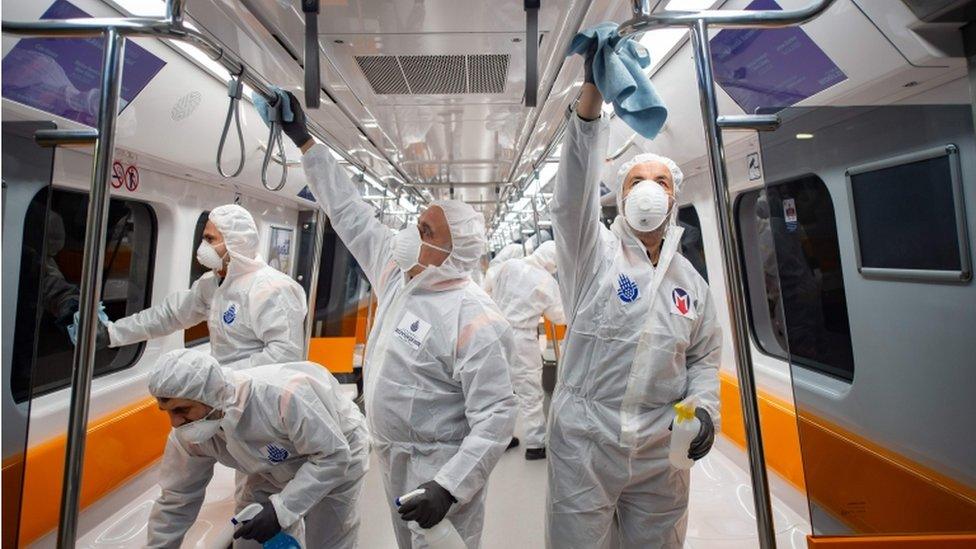
- Published13 March 2020
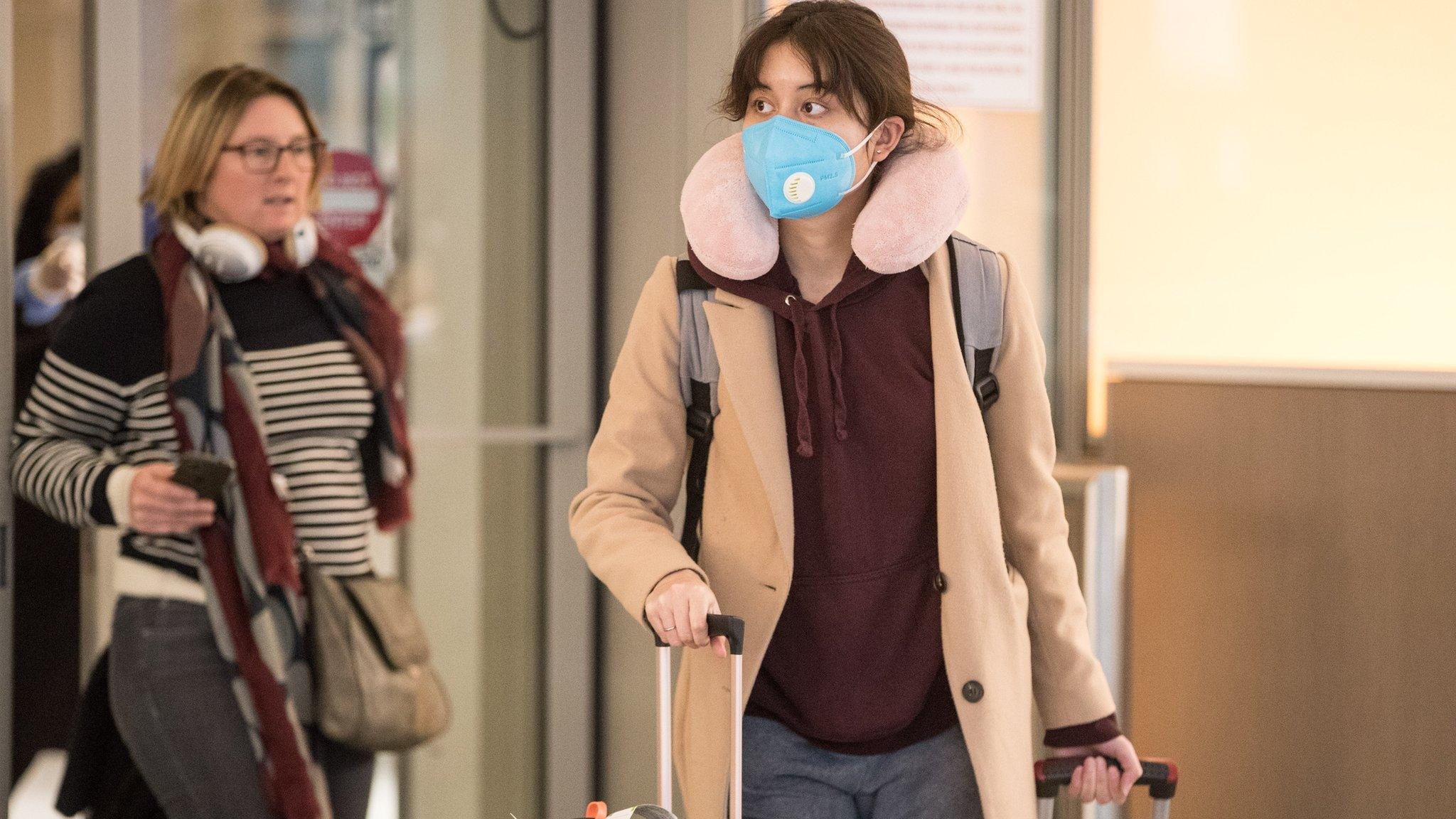
- Published13 March 2020
